Reflections on studying abroad: Spain 1968/2019
To celebrate 100 years of the Spanish programme at the University, graduate Nicholas Rollin and student Róisín MacFarlane reflect on their study year abroad, which is a key part of the programme, comparing their experiences of Granada in 1968 and Valladolid in 2019.
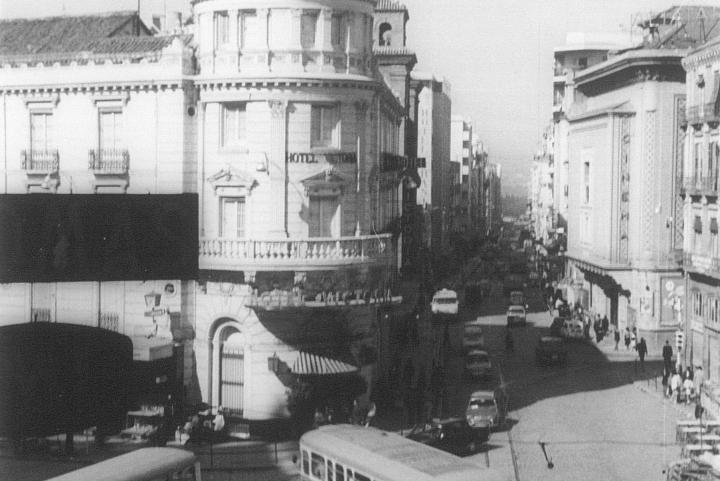
Where did you go on your year abroad and how did you enjoy it?
Nicholas: I did not want to go to a big city and being in a relatively provincial backwater was an attractive proposition. So, Granada seemed a good choice, because I had heard that it was a very pleasant place to live in and it seemed to offer a lot of interesting places to visit, things to do etc. In the event it proved to be both things. One of the first surprises was how cold it could get in winter. For example, frozen fountains were not something I expected to see.
Róisín: I’m currently studying at the Universidad de Valladolid, in the Castile and León region in the north of Spain. Valladolid is quite a small city but one with a hugely important history, which makes it a really interesting place to learn about Castellano culture. It’s also said to be the place with the purest form of spoken Spanish and there are very few English speakers here which has been great so far for improving my language skills. It’s definitely been a good choice for me.
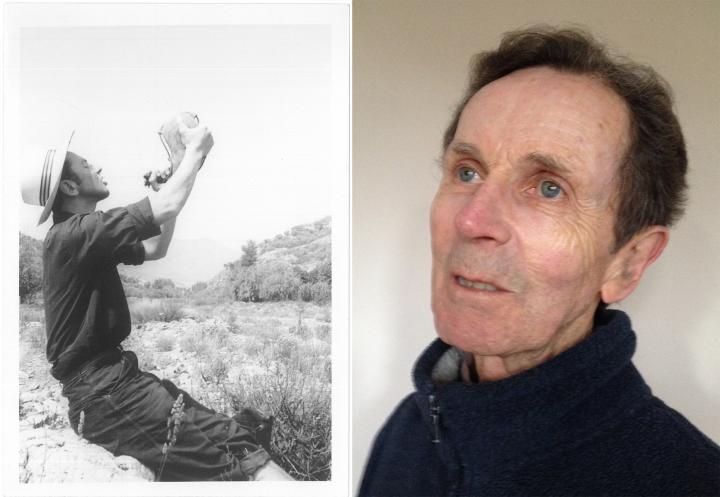
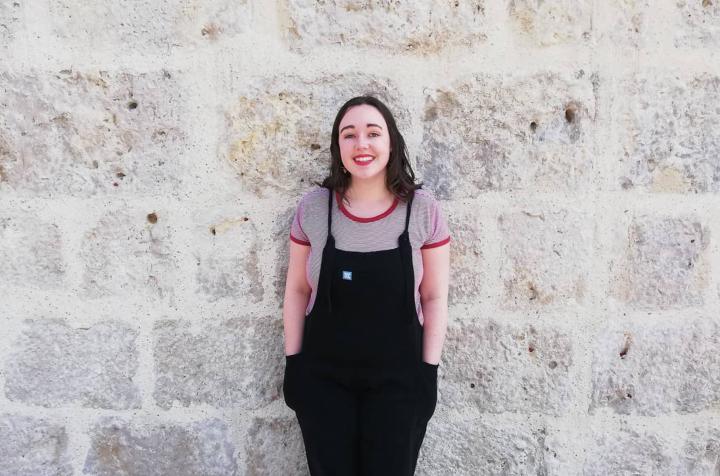
To what extent was there a prepared programme for your year abroad?
Nicholas: It was all very informal. You were encouraged to talk to the returning year abroad students in their final year. The University provided a comprehensive reading list of books you needed to have read in order to be prepared for the final year. You also needed to have chosen a subject for your dissertation relatively early on in your time away – if not before the end of the preceding summer term. Once this was approved, you were sent a longish letter with recommendations for further reading. Apart from that, there were very few formal arrangements, as far as I can remember.
Róisín: There was quite a structured programme in terms of Erasmus studying – we had a list of institutions in Spain which we could include on our form and we could either spend a semester or the full year in each location dependent on our other plans. Being that I study a joint languages degree and spent the first semester studying French translation in Geneva, I elected to come to Valladolid for my second semester. There was an element of flexibility outwith the Erasmus programme however. You could choose to teach in a school with the British Council, find a job or an internship for the semester, or opt to study or work in a Latin American country, but these options involved more independent planning and organisation.
What was, or has been, the best part of your year abroad?
Nicholas: It was a time of great freedom and you met a lot of different people. As well as the local people and the Spanish students, mainly from Granada Province, there were quite a few students from other countries. Not surprisingly it was very different from Edinburgh. Many men students went to lectures in a suit and tie! There was no central refectory. The tendency was, if you were not living in a hall, that you ate at one of the many restaurants catering for students. Women students tended to live in ‘residencias’, where full board would be provided. You had your breakfast in a university bar, or in one of the many bars, which often would have a standard breakfast on offer.
Something I had never appreciated before was the number of specialist guitar makers that there were. People were very serious about them and would order one from a specific guitar maker. Then there would be sessions with the guitar maker to ensure that the guitar met the customer’s precise requirements. The guitar makers were themselves accomplished players and these sessions could be quite lengthy. While this was going on, other customers, and their friends, would turn up to see how their guitar was coming on. All these people would then get a free mini-concert.
It was also a good discipline to tackle the reading list and dissertation topic while away from any supervision. Like now it was a time of change and you felt that many accepted norms were being challenged. The Cold War was in full swing, the Vietnam War was raging. Young people took centre stage with the whole ‘swinging sixties’ phenomenon. Flower power was touted as the way forward. In 1968 there were the dramatic events in Paris and in Spain itself, there was a feeling that an era (the Franco era) was coming to a close.
Róisín: Similarly to Nicholas, the diversity. Having never previously studied Spanish before coming to Edinburgh, arriving at Madrid Airport at the start of this semester was my very first time in Spain. My time abroad has allowed me to experience so many linguistic and cultural features which I’ve never experienced before, which I’ve absolutely loved. I think that’s just as integral a part of a languages degree, exploring a new culture and soaking it up in the most authentic way possible. It’s an incredibly unique year in your life where you have complete access to integrating into a culture and language as much as you possibly can.
I’ve tried new Spanish foods and drinks at every opportunity, seen flamenco dancing in the streets and, in the run up to Semana Santa, witnessed the unique interactions which Spanish culture has with religion. I’ve also been able to travel to other parts of Spain, including Bilbao, Madrid, and soon Granada too. I’ve particularly enjoyed that element, visiting friends in other parts of the country, and showing visitors around my city too. It really gives you a sense of confidence in the progress you’re making with the language.
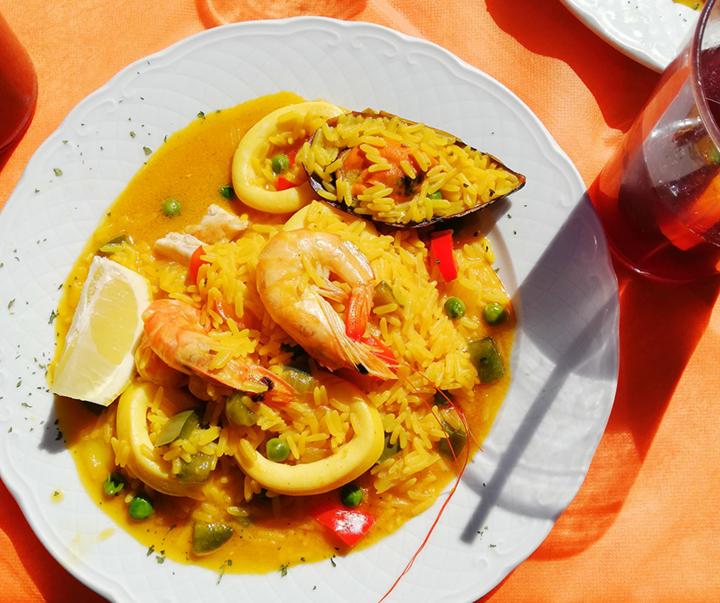
Did you learn/do anything that was completely unexpected on your year abroad?
Nicholas: A trivial thing was hearing students using proverbs, for example in the students’ cafe: El vivo al bollo y el muerto al hoyo. (Literally: Let the living get their bun and the dead go to their graves.) This was used to indicate that it was time to get something to eat. Another one was: Quien va a Sevilla pierde su silla. (Literally: If you go to Seville you’re going to lose your place.) A comment to indicate that if you don’t make sure of your seat/place, you’re likely to lose it.
I also learned that a drink called Montilla is a much cheaper, and very good, version of sherry. I walked the length of the Alpujarras with a friend. We followed the river as much as possible. At the end of it he said to me, ‘You really set a cracking pace all the way!’ My reply was, ‘Me set the pace?, I was trying to keep up with you.’
Róisín: Being that I didn’t really know what Spain would be like, everything has been a bit unexpected! I’ve picked up a lot of new phrases and expressions which I keep in a rapidly expanding notebook. Culturally, I really wasn't aware of just how differently the times operate, with most shops not opening until around 10am and dinner beginning at around 9pm. It’s something you adapt to quite quickly though, and when I was visited by friends recently I had entirely forgotten how strange they would find eating tapas at 1am!
Did you do anything particularly significant while away?
Nicholas: I was asked by the students in the Law faculty to give a talk on the role of students in university government and how they organised their representative bodies at Edinburgh. With some worries about whether I had got all my facts correct, I put on my best clothes and duly gave the talk. To my surprise, it was reported in two, very local, local newspapers. At the time there was a lot of student unrest, particularly in Madrid and Barcelona. So there was a lot of interest in how these things were managed in other countries, and particularly how free elections fitted into the scheme of things. In retrospect it seems to have been quite brave of the students to stage this, as freedom of expression and democratic processes were not exactly encouraged by the authorities at that time. In the event there was a good turn out and I was asked lots of questions, which I hope I answered accurately.
Róisín: In a similar vein to Nicholas, I really enjoyed being involved in the Valladolid demonstrations for Día Internacional de la Mujer or International Women’s Day. The streets were brimming with people of all ages and genders, and the vibrancy of the city really shone through with music and lights everywhere. It was also really interesting to see how the different communities of Valladolid interacted with the day, with youth groups, family groups and religious representatives all participating in different ways.
One of my courses here focuses on contemporary Spanish social history, and looking into Valladolid’s political history in terms of gender and its previous interactions with groups such as the Sección Femenina is really interesting, particularly seeing how things have evolved today.
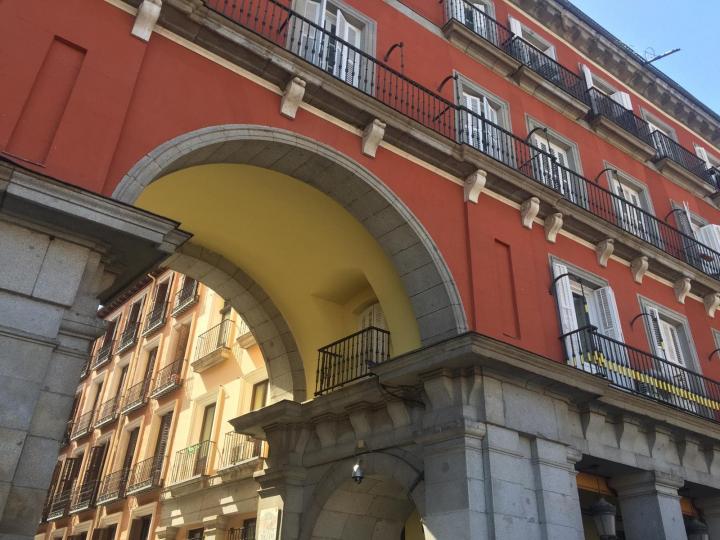
How did/does the year abroad relate to your future career or working life?
Nicholas: The year abroad was a long time ago as far as I’m concerned, but I’m sure it must have had its influence, as Spanish and languages in general have been very important to me in my working life.
Róisín: The communication and linguistic elements are obviously vital for my degree and my future career, as I really hope to keep my languages up post-university. In terms of my future career, I’m really interested in the digital content sector, and I’ve been able to document my year abroad via a blog for Scotland’s National Centre for Languages. That’s really challenged me to create videos and write posts which are interesting to a young audience and I’ve definitely picked up skills from that process which will be invaluable in the future.
What advice would you give to students thinking about going on a year abroad?
Róisín: I don’t know where to begin! Definitely do it! It’s been great to expand my sights outwith Edinburgh for a year and it’s really made me look forward to going back for my fourth year with a new outlook. I would definitely recommend making the most of your location and travelling as much as possible to really get an insight into your local culture and cross-country differences. Also document everything – whether it’s in a diary, a blog, or just photos on your phone, the memories you make you’ll want to look back on some day. And never hesitate to ask for help or to ask questions. I emailed and phoned so many people with every little question which came into my head and everyone was so happy to help. Especially current fourth years who have been through it all before – they really love to talk about it all and help wherever possible, so don’t hesitate.
Nicholas: I fully endorse Róisín’s advice. Mine applies to just about any situation. Make sure that this project is right for you in every way. Then go for it! Ask lots of questions and be prepared for things to work out slightly differently from the way you expected.
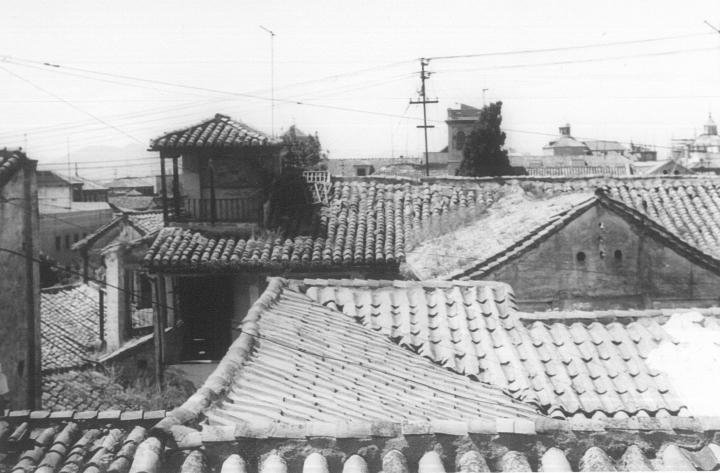
About Nicholas and Róisín
Over the course of his career, Nicholas Rollin made major contributions to many bilingual dictionaries. These include the Oxford Spanish Dictionary, the Oxford French Dictionary, the Oxford Arabic Dictionary, the Oxford Study Spanish Dictionary and Oxford School French Dictionary.
On her return from Valladolid – where she has been blogging about her experience as part of Scotland’s National Centre for Languages Language Linking Global Thinking project – Róisín MacFarlane will enter her final year of an MA (Hons) programme in French and Spanish at the University.
Find out more
Discover more about Spanish at the University’s 'Conectando: Scottish Encounters with Spanish & Portuguese', an exhibition celebrating 100 years of the Spanish programme, with items from the archives and collections exploring connections between Scotland and the Spanish- and Portuguese-speaking worlds.
The free exhibition runs until 29 June in the Exhibition Gallery at the University Main Library on George Square.
Read more about why Nicholas and Róisín decided to participate in the interview.

